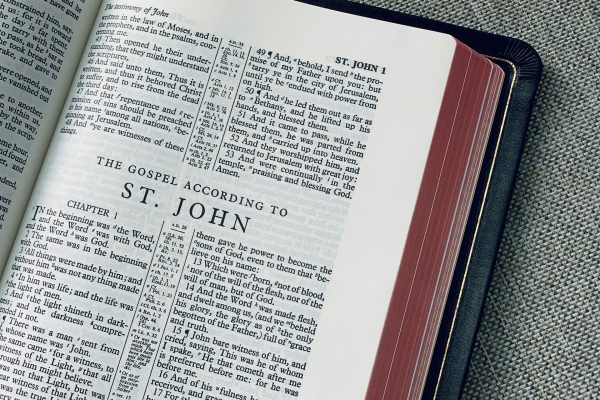One of the burning issues first century Christians faced was, “Was the Law, thus the Sabbath, binding on Christians?” Many Jews, who accepted Jesus as their Messiah, had become Christians but felt they were still obligated to keep the Law, circumcision, and the Sabbath. They also believed that Gentiles who had become Christians as they must also keep the Law and the Sabbath. Controversy erupted, but the Holy Spirit, whom Christ had promised to the apostles to guide them into all truth, revealed the answer to these issues which plagued them. Jewish believers were astonished to learn that not only were Gentiles not bound to keep the Law and practice circumcision, but neither were Jews!
The Hebrew epistle deals extensively with the problem. The writer showed that the Law was just a shadow of things to come (Hebrews 10:1), that the sacrifices of the Law could not remove sin (Hebrews 10:4), and that because the Law could not remove sin, the law Law was removed so that a new, more effect law (covenant) could be given. In Hebrews 8 the writer, directed by the Holy Spirit, quoted Jeremiah who prophesied that the days would come when God would make a new covenant with His people. That covenant would not be like the first. In that covenant men would not teach their brethren to “know to Lord: all would know Him from the least to the greatest of them” (Hebrews 8:11). No longer would there be remembrance of sins, God would be merciful to their iniquities and would remember their sins no more (Hebrews 8:12). The Hebrew writer commented on Jeremiah’s mention of a new covenant, saying, “In that he saith a new covenant he had made the first old. And that which is old and waxeth aged is nigh unto passing away” (Hebrews 8:13). Sabbath keepers say the Hebrew writer only alluded to the ceremonial part of the Law, not the ten commandments.
Paul, in Galatians 3, spoke more specifically of the removal of the Law, the ten commandments. He wrote, “Brethren, I speak after the manner of men. Though it be but a man’s covenant, when it hath been confirmed no one maketh it void or addeth thereto. Now to Abraham were the promises spoken, and to his seed. He saith not, And to seeds, as of many; but as of one, And to thy seed, which is Christ” (Galatians 3:15-16). The apostle’s point is that Jesus was the seed of Abraham in whom God would bless all nations. Since God confirmed that covenant with Abraham, no one could make it void: none could add to it. God would bless all nations though Jesus. The apostle then asked, “What then is the law?” This was a logical and reasonable question. If the Law wasn’t designed to be permanent nor could fill the essential, spiritual needs of men, why give it? The writer anticipated the question and answered, “It was added because of transgression and was ordained by angels through the hand of a mediator” (Galatians 3:19). In essence, Paul told the Galatians that the Law was given to restrain sin until the promised Seed should come. He likened the Law to a “schoolmaster” designed to bring men to that new covenant of Christ, adding, “But now that faith is come we are no longer under a schoolmaster” (Galatians 3:25). Still, advocates of the binding of the Law upon all men today would respond, “That’s not talking about the ten commandments.”
Let Paul speak once more. In Romans 7 Paul showed that Law has dominion over a man so long as he lives, but when he is dead, he is freed from that Law. He illustrated his point by marriage: A woman is bound by law to her husband so long as he lives. It is not until he is dead that she is free to marry a second husband (Romans 7:1-3). Then Paul made his point: “Wherefore my brethren ye also were made dead to the law by the body of Christ that he should be joined to another, even to him who was raised from the dead” (Romans 7:4).
The Jews had been made dead to the Law. Which law, one might ask — the ceremonial or the ten commandments? Once more Sabbath keepers respond: “The ceremonial.” But wait. Don’t stop here. Continue with the apostle as he concluded his argument. Paul asked, “Is the law sin? God forbid” (Romans 7:7). Paul was not teaching that the law he has shown to have been removed was sin. Then he said, “I had not known sin except through the law for I had not known coveting except the law said, ‘Thou shalt not covet’” (Romans 7:7). The law to which Jewish Christians were dead to was the Law which said, “Thou shalt not covet.” “Thou shalt not covet” is the tenth of the ten commandments. We are dead to that Law. We are under a new covenant, the covenant of Jesus Christ.
It is a sin today for someone to dishonor his parents, kill, steal, commit adultery, lie, or covet. However, it is not a sin today to do those things because they were part of the ten commandments. It is a sin to do those things today because Jesus, in His new covenant, forbids all those things. But one thing is absent from the ten commandments: the fourth commandment which said, “Remember the Sabbath Day to keep it holy is absent.” Because Jesus did not command us to keep the Sabbath no other person or law can make it a sin if we fail to do so.
Jim McDonald


